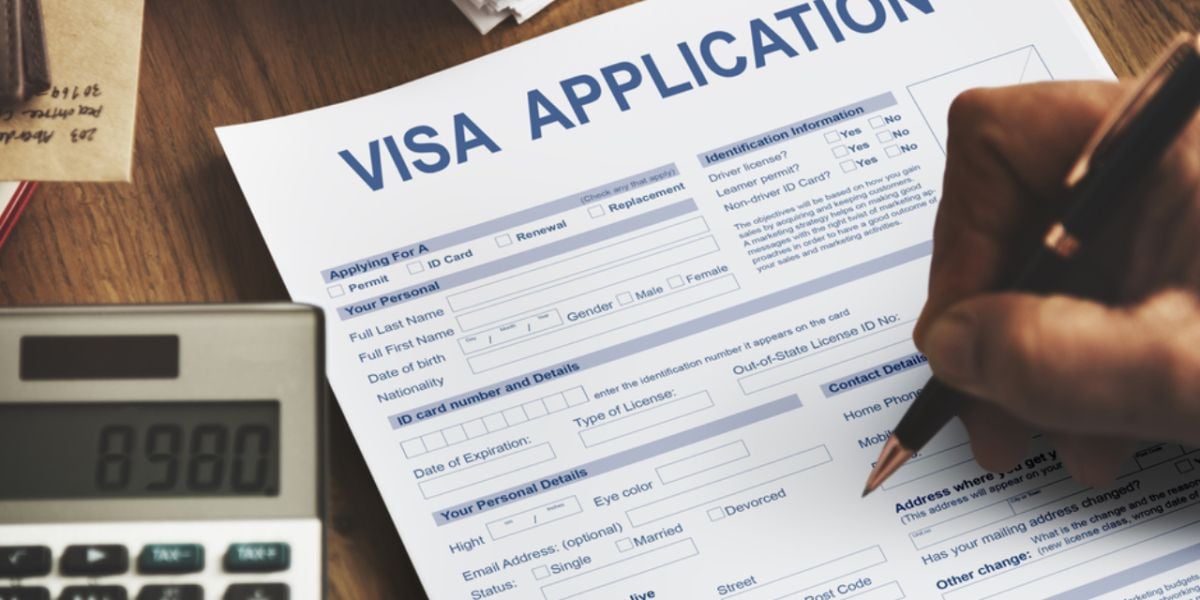
Whether you're a skilled professional seeking new career opportunities, a student ready to learn at world-renowned universities, or an entrepreneur with a new business idea - England offers diverse pathways for expats to build their future in the UK with their families. Understanding the visa landscape here is your first crucial step toward making England your new home.
Work visas in England
England operates a points-based immigration system for professional visas. Whether you're from the EU or elsewhere, you'll need the appropriate work visa for legal employment in England. Employers must hold a sponsor license and ensure employees meet specific criteria, which vary depending on what visa you're applying for.
There are different types of work visas available in England. The correct one for you depends on where you come from, why you want to move to England, how long you want to stay for and your personal circumstances and skills.
We'll start with the types of professional and work visas in England. You can work in the country on a short or long-term basis with a work visa, and there are a variety of UK visa types available.
The two most commonly sought-after options are the Skilled Worker visa and the Senior or Specialist Worker visa (Global Business Mobility). The latter enables you to work at a UK branch of your current employer, making it a convenient choice for international professionals.
Skilled Worker visa in England
A Skilled Worker visa is the most common work visa in England, even though the requirements to obtain it are high and stringent.
This visa allows you to come to or stay in England to do an eligible job with an approved employer. It also allows you to work in UK waters.
To qualify for a Skilled Worker Visa, you must:
- have a confirmed job offer from a UK employer that's approved by the Home Office;
- have a ‘certificate of sponsorship' from your employer with information about your role;
- do a job that's on the list of eligible occupations;
- be paid a minimum salary - how much depends on the type of work you do and the date you received your CoS.
You will also have to prove that your English language skills are at a good level.
If approved, your Skilled Worker visa lasts up to five years. You can apply for an extension multiple times, even with a different employer or position, as long as you meet the eligibility requirements.
However, after the first five years, you can apply for permanent residency in England (also known as ‘indefinite leave to remain'). This gives you the right to live, work and study here for as long as you like, and apply for benefits if you're eligible.
Is your occupation eligible for a Skilled Worker visa?
Not every job qualifies for a Skilled Worker visa. To determine whether your job is eligible, you'll need to know its unique four-digit occupation code. You can search for your job in the CASCOT occupation coding tool.
When you know your occupation code, you can then view this table of eligible jobs to see if it's included. Your employer should be able to provide you with the specific four-digit occupation code beforehand for this purpose.
Salary requirements for a Skilled Worker visa
The minimum salary requirement for a Skilled Worker visa in England is £38,700 per year, or the ‘going rate' for your job, whichever is higher.
For example, your salary is £40,000 per year, but the annual going rate for the job you'll be doing is actually £45,000. So, you do not meet the salary requirements for this visa.
Each occupation code has its own annual ‘going rate'. You can check the one for your job here.
Senior or Specialist Worker Visa (Global Business Mobility) in England
You will apply for a Senior or Specialist worker visa when your employer offers you a position at their UK branch. To qualify, you must:
- be an existing employee of an organisation that's been approved by the Home Office as a sponsor;
- have a ‘certificate of sponsorship' from your employer with information about the work you will do in England;
- do a job that's on the list of eligible occupations;
- be paid at least £48,500 per year.
For the Senior and Specialist Worker visa, the maximum duration of stay depends on your annual income.
If you earn less than £73,900 a year, you can stay for up to 5 years within any 6-year period, and if your annual income is £73,900 or more, you can stay for a maximum of 9 years within any 10-year period.
Important:
You cannot have a second job or apply to settle permanently under the Senior or Specialist worker visa.
There are cases in which you might be asked to show that you have worked for your employer outside England for at least twelve months. This usually applies to those earning less than £73,900.
Health and Care Worker visa
With a Health and Care Worker visa, you can practice your medical profession in England, either in the NHS, an NHS supplier, or adult social care.
To qualify for this visa, you must:
- be a doctor, nurse, health professional, or adult social care professional;
- work in an eligible health or social care job;
- work for a Home Office-approved employer;
- have a ‘certificate of sponsorship' from your employer with information about the role you've been offered in England;
- be paid the minimum salary - how much depends on the type of work that you do.
You must also be able to speak, read, write and understand English.
The validity of the Health and Care Worker visa is five years maximum, but it can be extended or updated if you change jobs or employers. Like a Skilled Worker Visa, after five years, you can apply to settle permanently in England (aka, ‘indefinite leave to remain').
The standard application fee depends on whether you'll be in England for up to three years or more. It costs £304 per person for up to three years and £590 per person for longer than three years.
You must also have at least £1,270 in your bank account to show you can support yourself in England.
Graduate Trainee visa (Global Business Mobility) in England
This type of visa allows you to come to or stay in England to work for your employer in their UK branch.
Wth this visa, you must be part of a graduate training programme for a managerial or specialist role. You must also apply from outside England.
To qualify, you must:
- be an existing employee of an organisation that's approved by the Home Office as a sponsor;
- have worked for your sponsor outside England for at least three months immediately before you apply;
- have a ‘certificate of sponsorship' from your employer with information about the work you will do in England;
- do a job that's on the list of eligible occupations;
- be paid at least £25,410 per year.
You will also need to pay the £319 application fee, pay the healthcare surcharge for each year of your stay and prove that you have enough personal savings.
With this visa, you can stay in England for whichever is shorter of:
- The time given on your certificate of sponsorship plus 14 days,
- 12 months.
You cannot extend your visa, but you can apply for another Graduate Trainee visa from outside England.
Entrepreneur visas in England
For entrepreneurs above the age of 18 years old who wish to expand or create a business in England, there is only one suitable type of visa: the Innovator Founder visa. This replaced the Tier 1 (Entrepreneur) visa in April 2023. So, if you still hold this type of visa, don't worry - you can still apply to settle in the UK (indefinite leave to remain), to extend your visa, or for your family members to join you.
Innovator Founder visa
Apply for an Innovator Founder visa if you want to set up and run an innovative business in England or have been endorsed by an approved body.
To be eligible, you must show that your business is new, innovative, has growth potential and is scalable. You must also be able to speak, read, write and understand English.
The Innovator Founder visa allows you to stay in England for three years. After 12 months, you'll need to meet with your endorsing body, and after two years, meet again to show that you're making progress with your business.
You can apply to extend your stay for another three years when your visa is due to expire. But if your endorsement is withdrawn by the endorsing body, your visa may be cut short.
Innovator Founder visa fees
How much you pay depends on where you are applying from:
- It costs £1,274 per person if you apply outside England.
- It costs £1,590 per person if you apply to extend or switch your visa in England.
You'll also need to pay £1,000 to get an endorsement from an approved endorsing body. Two additional payments of £500 will be subsequently required when you meet with your endorsing body.
Finally, like other visa types, you'll have to pay the healthcare surcharge as part of your application.
Student visas in England
With over 100 universities to choose from - including some of the world's most prestigious institutions in the world - studying in England is guaranteed to be a rewarding experience. So if you've decided to pursue your studies in England, it's important to understand the visa requirements and application process.
What is a UK Student visa?
A Student visa allows you to study at a UK educational institution for courses lasting longer than six months. This type of visa is designed for students aged 16 and over who want to pursue their education in England.
Eligibility for a UK Student visa
To qualify for a UK Student visa, you must meet several conditions.
Age and course requirements
First and foremost, students must be above the age of 16 when they apply and must hold an unconditional offer to enroll on a course that is provided by a licensed student sponsor.
Most recognised UK higher education institutions are, but make sure to check whether your institution is on the list of licensed student sponsors before proceeding with your application.
You can do one of the following courses with a UK student visa:
- a full-time course leading to a qualification that's below degree level (RQF level 3, 4 or 5) with at least 15 hours a week of organised daytime study;
- a full-time course leading to a qualification that's degree level or above (RQF level 6, 7 or 8)
- a full-time course at degree level or above (RQF level 6,7 or 8) that's equivalent to a UK higher education course and is being delivered as part of a longer course overseas
- a part-time course leading to a qualification that's above degree level (RQF level 7 or above)
- an English language course at level B2 or above in the Common European Framework of Reference for Languages
You can also apply for this visa if you're taking up a full-time elected position as a Student Union Sabbatical Officer.
Confirmation of Acceptance for Studies (CAS)
Once you get your unconditional study offer, the university will issue a Confirmation of Acceptance for Studies (CAS) unique reference number, which you must submit during your visa application.
You cannot apply without it as the CAS contains important details about your course, fees and other requirements specific to your situation.
Financial requirements
You'll need to prove that you have enough money for living costs and to pay your fees throughout your first academic year in England.
You may wonder how you will calculate the amount since living standards differ for each person and from one city to another. The amount you need to have in your bank account will be stated on your CAS.
Besides tuition fees, the average cost of living in London for students can range between £2,300 and £2,500 per month. Studying outside of London, however, will cost less than this.
The way to prove the availability of the funds is through a bank statement that will show that the money has been in your bank account for 28 or more consecutive days. The last day of the 28-day period must be within 31 days of the date of your visa application.
English language proficiency
To complete your application, you will be asked to prove your English language skills - including writing, speaking and listening.
There are recognised tests from approved providers that organise English language tests in countries and issue valid certificates.
A Secure English Language Test (SELT) for a Student visa application can be granted by one of the following recognised providers:
- IELTS SELT Consortium;
- LanguageCert;
- Pearson;
- Trinity College London;
- PSI Services (UK) Ltd.
Good to know:
You don't need to prove your English language skills if you have a GCSE, A level, Scottish National Qualification level 4 or 5, Scottish Higher or Advanced Higher in English, gained through study at a UK school that you began when you were under 18.
There are also specific countries that are not required to prove their knowledge of English.
Student visa application process
When you can apply depends on whether you're applying from inside or outside England.
Applying from outside England: The earliest you can apply for a visa is six months before you start your course. You'll usually get a decision on your visa within three weeks.
Applying from inside England: The earliest you can apply is three months before your course starts. You must apply before your current visa expires, and your new course must begin within 28 days of your current visa expiring. You'll usually get a decision within eight weeks.
As for fees, it costs:
- £524 to apply for a Student visa from outside England,
- £524 to extend or switch to a Student visa from inside England.
You'll also need to pay the healthcare surcharge as part of your application. For students, this is £776 per year.
Important:
If you are a Student visa applicant from a country listed under the Tuberculosis test requirement, you should make the appropriate arrangements for getting your results from a laboratory approved by the Home Office clinic.
What to do if your UK student visa application is refused
In the unfortunate case that the Home Office refuses your Student visa, contact the immigration or international office of your university for advice on how to proceed next. If you believe that your application was unjustifiably refused, you have 28 days (if you are outside England) and 14 days (if you are within England) to contact the Home Office and request an Administrative Review based on the reasons for refusal stated on the refusal letter. This will cost you around £80.
In most cases, you cannot submit new or different documents during the Administrative Review other than those you submitted with your initial application.
Last but not least, for refused visa applications, you are not entitled to receive a refund of the application fee, but you will get back the Immigration Healthcare Surcharge.
Important:
If you proceed with a new visa application in the future, make sure you declare that you have previously been refused entry permission in England, as it is against the law to withhold such information.
Child student visa in England
If you are between four and 17 years old and want to study in England, you can apply for a Child Student visa, which costs £363. Your rights under this type of visa are more or less the same as those under the Student visa.
However, besides the age requirement for the Child Student visa, this visa is also for students who will study the national curriculum, RQF level 3, or the independent school education inspection standards. The national curriculum includes subjects taught at all public primary and secondary schools in England, whereas academies and private schools can follow their own curriculum.
Graduate visa in England
Graduates who have completed their studies in England and wish to stay to search for job opportunities may be eligible to apply for a Graduate visa, allowing them to remain in England for at least two years.
It's important to note that to apply for a Graduate visa, you must not have left England after completing your studies and must apply from within England.
Family visas in England
For many expats, moving to England isn't just about personal or professional opportunities - it's about building a life with loved ones.
England's family visa system recognises this and the importance of keeping families together, so there are several options for partners, spouses, children and other family members to join or remain with their relatives in the country.
Partner and spouse visas in England
The most common family visa route is for partners and spouses. Whether you're married or in a civil partnership - or even a long-term relationship - you can apply to join your partner in England if they meet certain criteria.
Your partner must:
- be a British or Irish citizen;
- have settled status in the UK (such as indefinite leave to remain);
- have pre-settled status from the EU Settlement Scheme (or hold other qualifying immigration statuses, like a Turkish Worker visa or protection status, for example).
To qualify, both you and your partner must be aged 18 years old and above, and you must be able to prove that your relationship is genuine and ongoing.
The Home Office accepts several types of relationships for this visa category. You can apply if:
- you're married or in a civil partnership that's recognised in England;
- you have been living together in a relationship for at least two years;
- you are engaged to be married or enter a civil partnership within six months of arriving in England;
- you have been in a relationship for at least two years but can't live together due to work, study or cultural reasons.
You'll also need to prove that you have a good knowledge of English and that you meet the financial requirements (more on this below).
Proving your relationships for a partner visa
Evidence is crucial for partner visa applications in England. You'll need to provide documentation that comes from official sources - like government bodies, banks, landlords, utility providers or even medical professionals.
This evidence should confirm your relationship and be less than four years old.
Acceptable evidence includes:
- marriage or civil partnership certificates;
- tenancy agreements showing you live at the same address;
- utility bills or council tax bills in both names;
- joint bank account statements;
- letters from your doctor or dentist that confirm you live together.
With that said, if you don't live together due to work, study or cultural reasons, the above can be harder to obtain. So you'll need to prove your ongoing commitment to each other through evidence of regular communication, financial support, care for shared children, and any time spent together as a couple.
Financial requirements for partner visas
One of the most significant hurdles for partner visa applications is meeting the financial requirements. Both you and your partner must show that you can financially support yourselves without relying on public funds.
You'll need to prove that your combined income is at least £29,000 a year. This is known as the ‘minimum income requirement'.
These can differ, however, if either your partner is getting certain disability or carer's benefits, or you first applied as a partner before 11 April 2024 and you're extending that visa - this includes if you first applied as a fiancé, fiancée or proposed civil partner.
There are exceptions when you may not be required to prove you meet the minimum income requirements, including when your partner receives one of the benefits listed on this GOV page.
How long you can stay with a partner visa
You can remain in England for two years and nine months on this type of visa. If you're applying as a fiancé, fiancée or proposed civil partner, you can stay for 6 months.
After this, you'll need to apply to extend your stay.
The earliest you can apply to settle in England - ie, the ‘indefinite leave to remain' - is after you've lived here for five years continuously on a family visa as a partner.
Other family visas in England
England offers visa routes for other family members - including parents, children and adults coming to be cared for by relatives. You can also apply on the basis of your private life, which considers your age and how long you've lived in England for.
Children under 18 years old can also be added to their parents's visa applications as dependents, provided that they don't live independently.
Application process and timelines
The application process for family visas varies depending on whether you're applying from inside or outside England.
If you're applying from outside the country, you'll usually receive a decision within 12 weeks. Applications from within England can take up to eight weeks, so long as you meet the financial and English language requirements, but can also take up to 12 months if you don't meet these criteria.
Like other visa types in England, family visas require payment of application fees and the healthcare surcharge, though fee waivers may be available for those facing financial hardship.
We do our best to provide accurate and up to date information. However, if you have noticed any inaccuracies in this article, please let us know in the comments section below.








